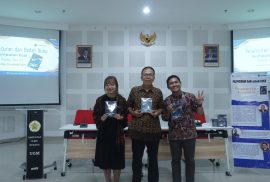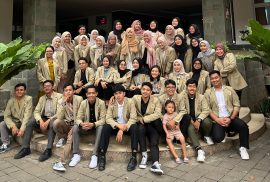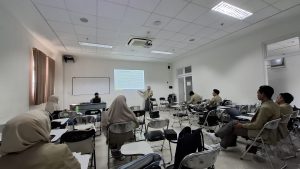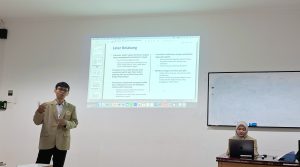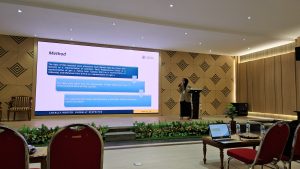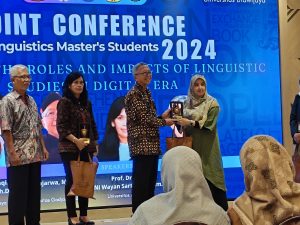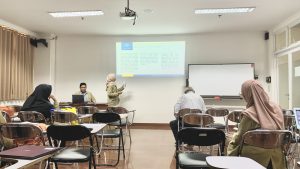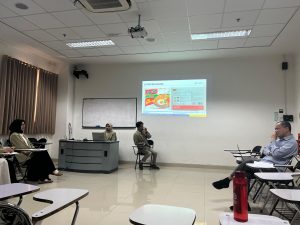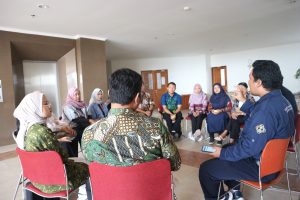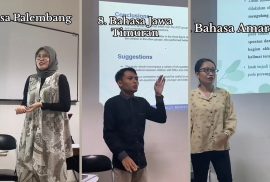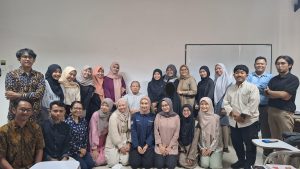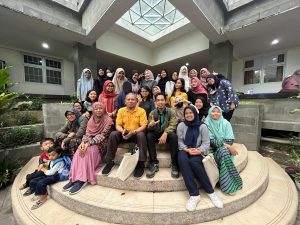Kalingga organized a book launch and discussion on the latest essay anthology written by twenty-nine Kalingga’s members. It took place in Soegondo Auditorium, the Faculty of Cultural Sciences, Universitas Gadjah Mada on Tuesday, November 28, 2024. The head of the Master’s Program in Linguistics, Prof. Dr. Suhandano, M.A. opened the discussion. The discussion invited Dr. Tri Mastoyo Jati Kesuma, M.Hum as the keynote speaker, Yuliana Kristianti as the representation of the writer, and Deni Ferdiansyah moderated the discussion.
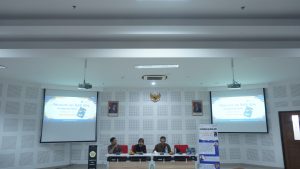
The essay was written by twenty-nine Kalingga members exploring contemporary linguistic issues, future challenges for linguists, notable figures in the field, and advancements in language learning. To begin the discussion, Yuliana Kristianti as the speaker, representing the writers, tried to find out why the women should not swear compared to the men. “Well, we have to look at the situation and context to fully understand how swear words are used by genders. In addition, some factors such as social economy, educational background, and social-religious norms might be involved in the reason why women do not swear a lot or they are constructed not to swear a lot,” explained Yuliana.
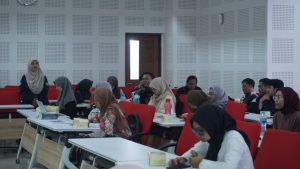
The discussion reached its peak as Dr. Tri Mastoyo Jati Kesuma, M.Hum conveyed his response and ideas regarding the book. He expressed his appreciation to the students––the writers––who had transferred their concerns into such an interesting article. “It is good to see the students are able to sense the issue and wrote it,” he said. He also mentioned that such activities can enhance student’s ability to use their intuition in seeing the issues from different perspectives as well as to strengthen their ability to write.
“I hope that we will never grow tired of practicing. Keep the fire within us burning to create and produce other remarkable works,” Hurrotul inspired the audience.

